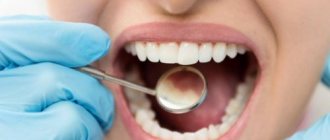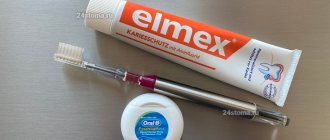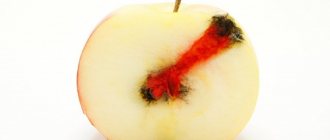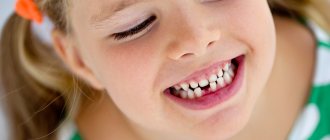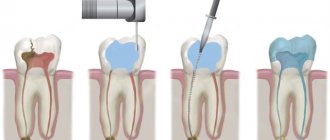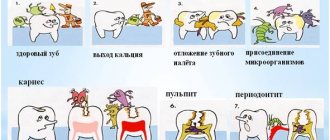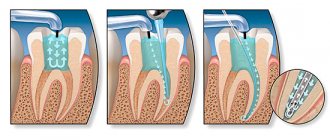What role does a proper diet play in preventing tooth decay?
A healthy, balanced diet is an important factor in the maturation and mineralization of tooth enamel, the prevention of caries and periodontal diseases.
In this article
- What role does a proper diet play in preventing tooth decay?
- How to eat properly to avoid caries?
- What foods can be dangerous for teeth?
- Drinks that increase the risk of tooth decay
- What to eat to prevent caries?
- Other caries prevention measures
The foods we eat affect:
- on the number of bacteria in the oral cavity (the more food rich in quickly digestible carbohydrates and sugars, the more microbes);
- on the amount and composition of saliva, which cleans teeth and naturally neutralizes the effect of bacteria;
- for self-cleaning of teeth and oral cavity (solid food cleanses teeth of food debris and soft plaque);
- on the level of acidity (its increase promotes the active proliferation of bacteria);
- on the general condition of the body and teeth in particular.
Thus, in order to prevent caries, it is necessary not only to maintain oral hygiene and regularly visit the dentist, but also to correct the diet and general nutrition system.
Therapeutic pastes for tartar
Hard plaque can be completely removed only by professional ultrasonic cleaning or using a special Air Flow device. Toothpastes are used more as a preventive measure; they can lighten pigmented areas and remove small plaques.
Such products are recommended for tea and coffee lovers and, of course, smokers. Typically anti-tartar pastes contain:
- a small amount of fluorine (0.1 - 0.6%);
- antiseptics;
- minimal amount of sodium lauryl sulfate.
These products are highly abrasive - the RDA index is above 100. It must be remembered that abrasives increase the permeability of enamel. This means that you will need to increase your care: use floss and rinses.
How to eat properly to avoid caries?
To reduce the risk of dental caries, you need to adjust your diet in accordance with the following recommendations:
- Limit foods that cause caries in your diet, in particular, minimize the consumption of fast carbohydrates and sugars.
- Rinse your mouth or brush your teeth after every meal. For rinsing, you can use water or special solutions.
- You should not eat sweets between main meals, so that sugar does not remain on your teeth - a breeding ground for microbes.
- Add more solid and fibrous foods (fresh vegetables, fruits) to your diet, which will cleanse the enamel of soft plaque and remove food debris.
- Eat food at a comfortable temperature (neither hot nor cold).
- There are foods high in fluoride, calcium, phosphorus, and vitamin D that are good for teeth.
- Chew food well and for a long time, because chewing produces saliva, which has a bactericidal effect and destroys the cell walls of bacteria.
Pastes to reduce tooth sensitivity (hyperesthesia)
A suitable choice for anyone who experiences great discomfort from eating cold and hot foods, sweet and sour. Such pastes are also recommended for pathological abrasion of enamel, wedge-shaped defects and microcracks.
Remedies for hyperesthesia are characterized by a high concentration of fluoride and potassium, and, at the same time, a small amount of abrasive substances. To clean with such a paste, you need to use a soft brush, otherwise you will significantly reduce the positive effect.
It is also necessary to remember that you should not brush your teeth for a long time with a paste for hyperesthesia. It does not remove soft plaque well. And its accumulation over time can lead to the formation of tartar and other problems. Therefore, when the acute symptoms disappear, replace this paste with a regular hygienic one.
What foods can be dangerous for teeth?
- Food that is too hot or too cold weakens tooth enamel and causes microcracks to appear on it, into which cariogenic microbes easily penetrate.
- Sweet foods are an ideal breeding ground for bacteria. Microbes convert the sugars contained in sweets into acids that destroy enamel and dentin, causing caries. In addition, some sweets (for example, caramel, toffee, candy bars) stick to the teeth, get stuck in hard-to-reach places and remain in the mouth for a long time, exacerbating the proliferation of microbes.
- Acidic foods. Although citrus fruits are very beneficial for our immunity, in large quantities they can be dangerous for tooth enamel due to the acid they contain. Also, due to the high acid content, store-bought sauces, ketchups, and pickled foods can be dangerous for teeth. To prevent dental caries, it is recommended to rinse your mouth with clean water immediately after eating acidic foods.
- Fruits and berries in large quantities, as modern research shows, can also increase the risk of developing caries. It turns out that modern fruits contain much more sugar than just a few decades ago. Therefore, it is recommended to eat them in moderation.
- Unpeeled seeds and nuts wear away tooth enamel and contribute to the appearance of chips on the surface of teeth, which increases the risk of developing caries.
- Alcohol, chips, and crackers contribute to a prolonged feeling of dry mouth and reduce salivation. But saliva naturally cleanses teeth of food debris and has an antimicrobial effect.
Drinks that increase the risk of tooth decay
- Sodas like Coca-Cola stain the surface of tooth enamel and destroy bone tissue in the body.
- Tea helps wash out calcium and stains teeth, while coffee also promotes the growth of bacteria in the oral cavity.
- Energy drinks destroy tooth enamel due to large amounts of acids.
- Store-bought fruit juices contain large amounts of sugar.
You don’t have to completely give up all drinks, but you need to follow safety precautions when drinking them. For example, drink juices or tea through a straw to minimize contact with teeth.
Products affecting the development of caries
Bacteria that contribute to the development of caries constantly live and multiply in the oral cavity. Bacteria feed on leftover food, which, as a result of fermentation, forms organic acid. Acid has a negative effect on tooth enamel, gradually destroying it, which leads to the formation of a carious cavity in the tooth. The development of caries is especially affected by the consumption of sugar-containing foods, as well as foods rich in carbohydrates. To a slightly lesser extent, but also contribute to the development of carious processes, lactose, fructose and glucose. In order to strengthen tooth enamel, you need not only not to abuse carbohydrates, but also to include in your diet vitamins containing fluoride and calcium, minerals, as well as foods rich in vitamin D. Fluoride. The optimal daily dose of fluoride is 2 or 3 mg. Most of it enters the human body with drinking water, but this is not always enough. Fluoride is involved in the construction of tooth enamel, as well as bone tissue, which is why it is such an important component. However, it is worth remembering that oversaturation with fluoride is just as dangerous as its lack. Calcium. This is the most important builder of bones. For an adult, the norm is 800-900 mg per day. But it is important to know that calcium is absorbed only in the presence of vitamin D. Vitamin D. The norm is 5 mcg per day. In those areas and areas where there is not enough sun, experts recommend using it additionally.
What to eat to prevent caries?
Not only limited consumption of foods that are harmful to dental health helps reduce the risk of developing caries, but also, on the contrary, the introduction of foods that are rich in beneficial microelements into the diet. Fluoride, calcium and phosphorus play a vital role in caries prevention.
Fluoride strengthens tooth enamel, prevents the proliferation of pathogenic microflora, and in childhood plays a decisive role in the proper formation of teeth. Food sources of fluoride are black and green tea, mineral water, garlic, fish, walnuts, parsley, and seafood.
Calcium is the main building material of teeth; it strengthens and restores tooth enamel, protects it from the destructive effects of acid produced by bacteria. If you want to have healthy teeth without caries, your diet should include dairy products, eggs, herbs, nuts, and green vegetables. Vitamin D is necessary for the absorption of calcium. Therefore, along with calcium-containing foods, the diet should include foods containing this vitamin: fish oil, egg yolk, cod liver, tuna, butter.
Phosphorus promotes normal tooth growth and maintains healthy enamel. Buckwheat, fish, oatmeal, beans, and red meat are rich in phosphorus.
Treatment of caries in our dentistry
If your child has dental problems or you want to prevent caries, we invite you to our clinic. We have excellent doctors who are well versed in child psychology and the treatment of dental diseases in children. We will provide a high-quality consultation, help the child get rid of fear of the dentist, if he has one, teach him how to brush his teeth correctly, and carry out all the necessary procedures to prevent the development of caries. Our child will receive only positive emotions!
Other caries prevention measures
A healthy and balanced diet is of great importance in preventing the development of dental caries. However, you should not expect that giving up some foods and eating others can completely get rid of dental caries. An integrated approach is important in the fight against cariogenic bacteria and the prevention of caries. After adjusting your diet, also pay attention to the following points:
- Brush your teeth regularly with a properly selected brush and paste, use floss, dental floss or irrigators to remove food debris from hard-to-reach areas and interdental spaces.
- Visit your dentist twice a year for preventative purposes, even if you have no symptoms of caries and no signs of oral discomfort.
- When caries appears, treat it at an early stage, without delaying the process to a deep stage or pulpitis.
- Regularly visit a hygienist for professional teeth cleaning - special equipment will help remove complex plaque from the surface of the teeth, which is difficult to remove with manual brushing.
Compliance with these simple preventive measures plus nutritional correction towards a healthy and balanced diet will allow you to maintain healthy teeth for a long time and prevent the development of caries.
Professional hygiene
Modern methods of preventing dental caries involve in-office hygienic cleaning twice a year. Professional hygiene is aimed at removing bacterial plaque and mineralized formations (plaques, stones) from the supragingival and subgingival parts of the tooth. Hygienic cleaning includes the following steps:
- Removal of hard and soft deposits using the AIR-FLOW method or ultrasonic scaler.
- Polishing the surface of the teeth with an abrasive paste.
- Protection of enamel with fluorine varnish.
Hygienic procedures are painless and carried out quickly. Another plus is that the dentist gets the opportunity to accurately assess the condition of the oral cavity and detect pathology at the initial stage. Each stage can be carried out as an independent procedure. But it is a complete hygiene complex that will ensure effective prevention of diseases of the teeth and gums.


